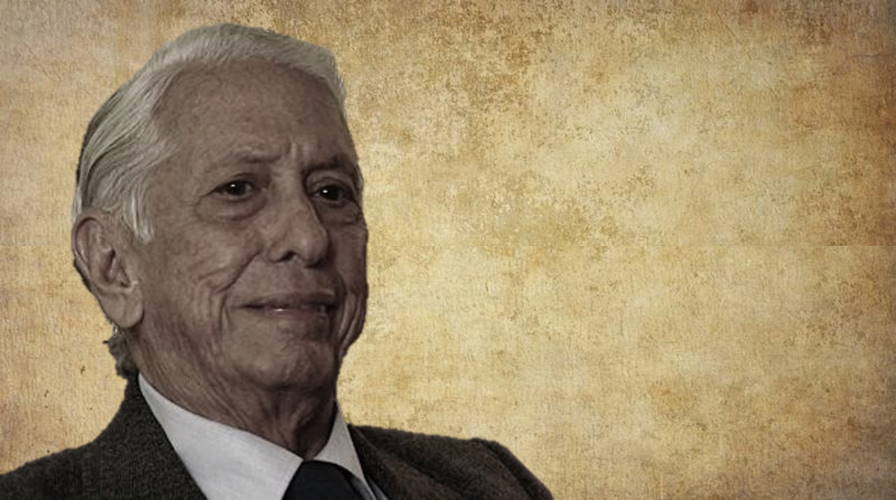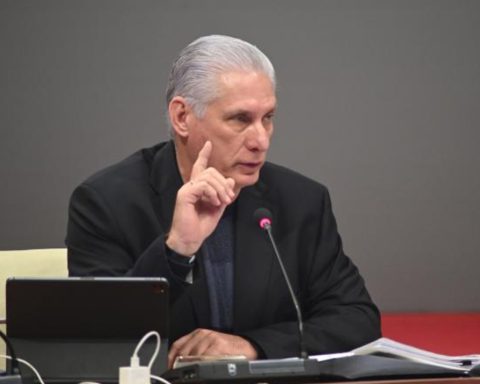Havana Cuba. — Last year, the centenary of the birth of the writer Cintio Vitier (September 25) was celebrated with great fanfare in Cuba by the decision-makers of the official culture. As much as they owed him, it couldn’t be less. Regardless of his merits as an essayist, poet and literary critic, Cintio Vitier was one of the most important organic intellectuals of Castroism. Only that the regime got hold of it quite late.
Vitier was convenient when in the last years of the 1980s, after showing the first symptoms of the collapse of Soviet communism that was to come, Castroism decided to become jingoistically nationalist and quote José Martí more than Marx and Lenin.
Of solid culture, student of Marti’s thought and supporter of the teleological account of the history of Cuba since his time as a member of the Grupo Orígenes, Vitier came in handy for the Castroists. Thus, since he was awarded the National Prize for Literature in 1988 and until his death, which occurred on October 1, 2009, he dedicated himself to threading the story of Fidel Castro as a follower of Martí and of the Castro revolution as the inevitable destiny of the Cuban history.
But in the 1960s and 1970s, Cintio Vitier and his wife, the poet Fina García Marruz, in addition to being criticized for their secrecy, like the other writers of Orígenes, did not enjoy the trust of the cultural commissioners of the Castro regime for being bourgeois. and fervent and practicing Catholics.
Let us remember that Vitier’s best-known essay, That sun of the moral world (1975) —a beatific historical-philosophical dissertation on Cuban ethics and spirituality— first appeared in Mexico and took more than ten years before it was allowed to be published in Cuba.
Like the poet Eliseo Diego, with whom they were related, Cintio Vitier and Fina García Marruz, religious, cultured, refined, with exquisite tastes, created a harmonious family of bourgeois habits. Taking all of this into account, their fascination with Castroism and the fact that they have been able to combine their Catholicism with Marxism-Leninism is inexplicable.
How many bitter mouths Cintio and Fina would have to swallow, and always dissimulating, in their dealings with the boorish commissioners of teque and agit-prop and the gossiping and racketeering bureaucrats of the UNEAC!
Cintio Vitier, who made several anthologies of Cuban poetry, dragged the ballast of his elitism and his prejudices. That was revealed in what is considered his canonical book, The Cuban in poetryfrom 1958, which is a capricious teleological account of the national lyric.
For example, in said book, Vitier described Placido (Gabriel de la Concepción Valdés) as “a minor poet”. When comparing it with Jose Maria Heredia, Placido comes out badly. According to Vitier, Plácido’s voice, “without its own song, made of other voices”, is “the most humble that our poetry has ever had”. He recognizes that Placido’s voice is personal and unmistakable, but affirms that, for the same reasons, “it is born and dies with him, it does not continue or announce anything, it does not belong to the historical future.”
On the other hand, for Enrique José Varona, Plácido was “the most spontaneous poet in all of Latin American literature.” According to Varona, “by the effort of an astonishing genius he rises at intervals to the peaks of poetic inspiration only to fall precipitously later; a writer who is both grandiloquent and incorrect, a street versifier, a poet who eats at house parties and a sublime lyricist”.
Bearing in mind that Placido was a self-taught mulatto comb maker, raised in the Casa de Beneficencia, Varona’s opinion seems much more just than Cintio Vitier’s exclusionary criteria.
If he judged Placido so harshly, what would Vitier think of the mediocre versifiers and rhapsodists of Castroism?
OPINION ARTICLE
The opinions expressed in this article are the sole responsibility of the issuer and do not necessarily represent the opinion of CubaNet.
Receive information from CubaNet on your cell phone through WhatsApp. Send us a message with the word “CUBA” on the phone +525545038831, You can also subscribe to our electronic newsletter by giving click here.













![[Video] Withering knockout and to the canvas: Yuberjen won his first professional title [Video] Withering knockout and to the canvas: Yuberjen won his first professional title](https://latin-american.news/wp-content/uploads/2022/09/Video-Withering-knockout-and-to-the-canvas-Yuberjen-won-his.jpg)


